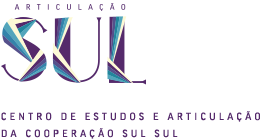The Centre of Excellence against Hunger, a partnership between the World Food Programme (WFP/UN) and the Brazilian government. It completed, in 2016, five years since its establishment. Over the past years, the Centre has been supporting countries to strengthen their capacities to develop and enhance national initiatives in areas such as social protection, home-grown school feeding, and food and nutrition security, aiming at encouraging innovative, sustainable, and nationally-owned solutions to overcome hunger.
To explore and communicate the lessons learned and the results achieved so far, this external evaluation assessed the degree of achievement of Centre of Excellence’s objectives, the efficiency of its strategies, the quality of its methodologies. It also identified recommendations that can inform future interventions. Since this is Centre’s first evaluation, we have chosen a methodological strategy to give an overall picture of the Centre’s contribution during its five years of existence. Guiding our analysis there is a comprehensive Evaluation Matrix, based on the Centre’s Theory of Change, and which encompasses the full range of Centre’s strategies and methodologies, providing the basis for the thorough analysis developed in this report. To enhance data availability for future evaluative endeavours, particular Monitoring & Evaluation recommendations are drawn in the conclusions. In the context of the 2030 Agenda this evaluation also aimed to provide evidence-based information on the contribution of South-South and Triangular cooperation, as well as capacity development interventions, to attaining the Sustainable Development Goals (SDGs).
The impact evaluation covers the period from 2011 to 2016 and was carried out in partnership with MOVE Social. Parallel to the evaluation process, we have supported the Centre of Excellence in strengthening its M&E system. In that sense, we have designed a Monitoring, Evaluation and Learning system to be implemented by the Centre in the years to come.
Read it here

